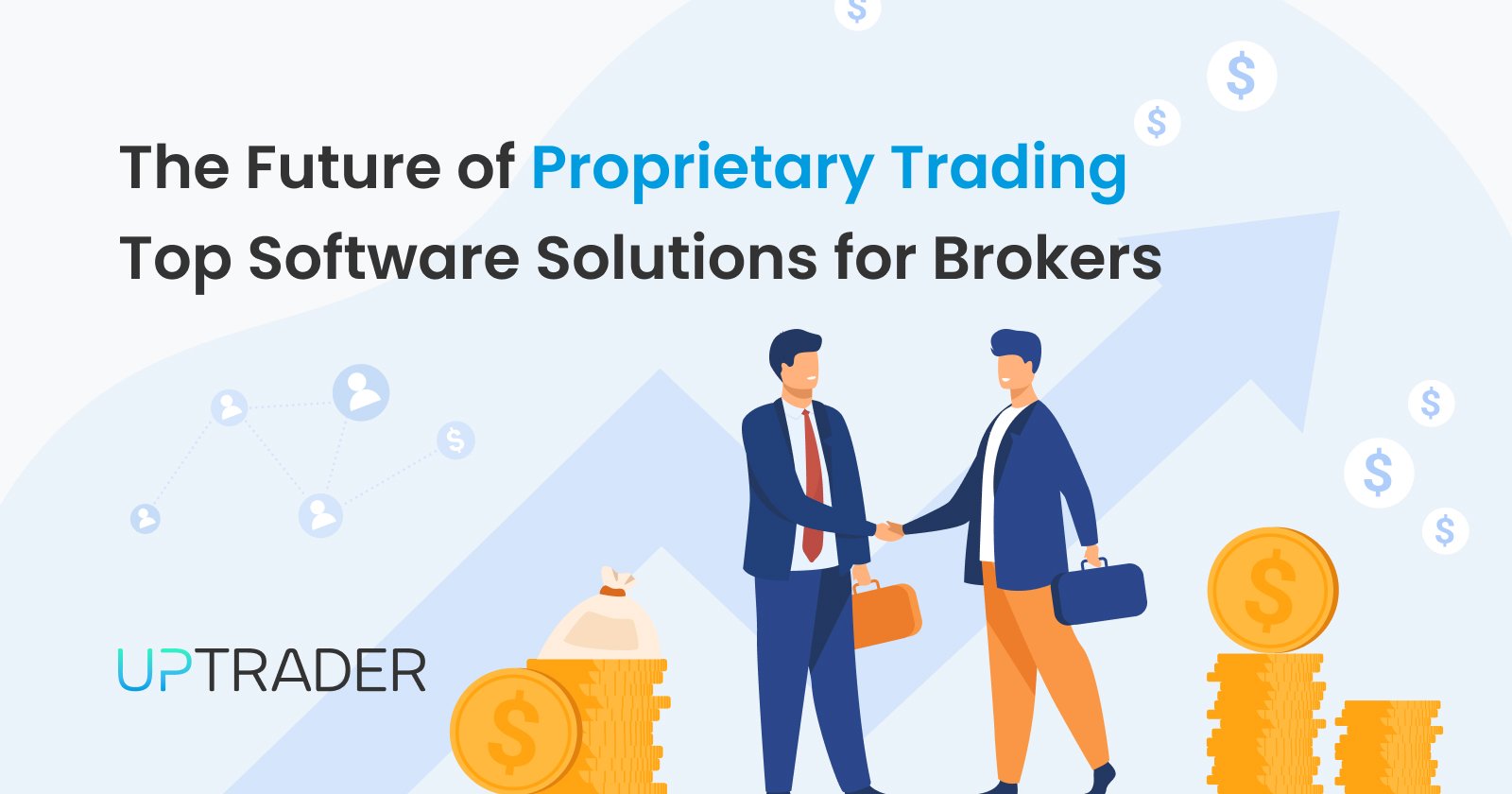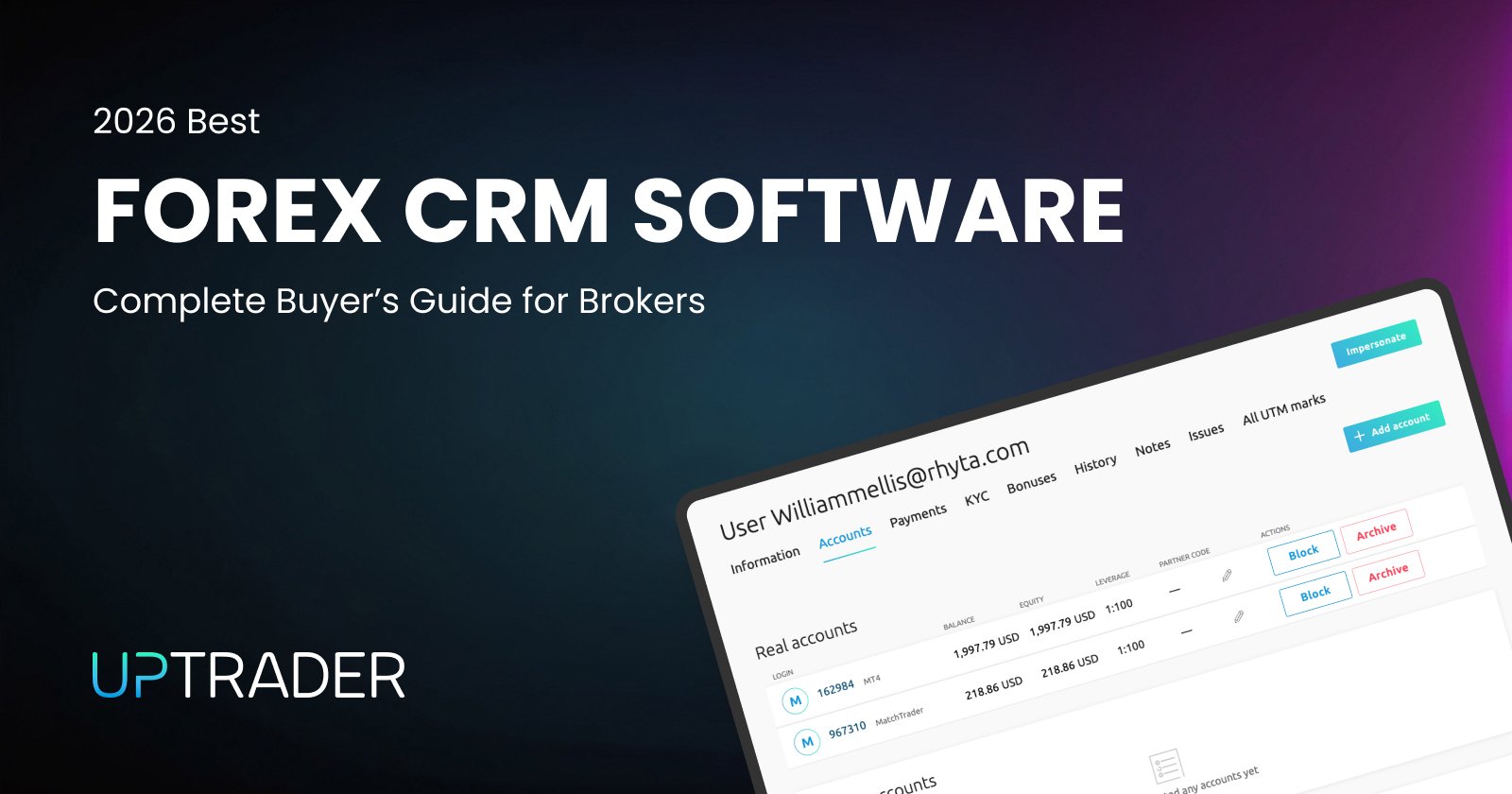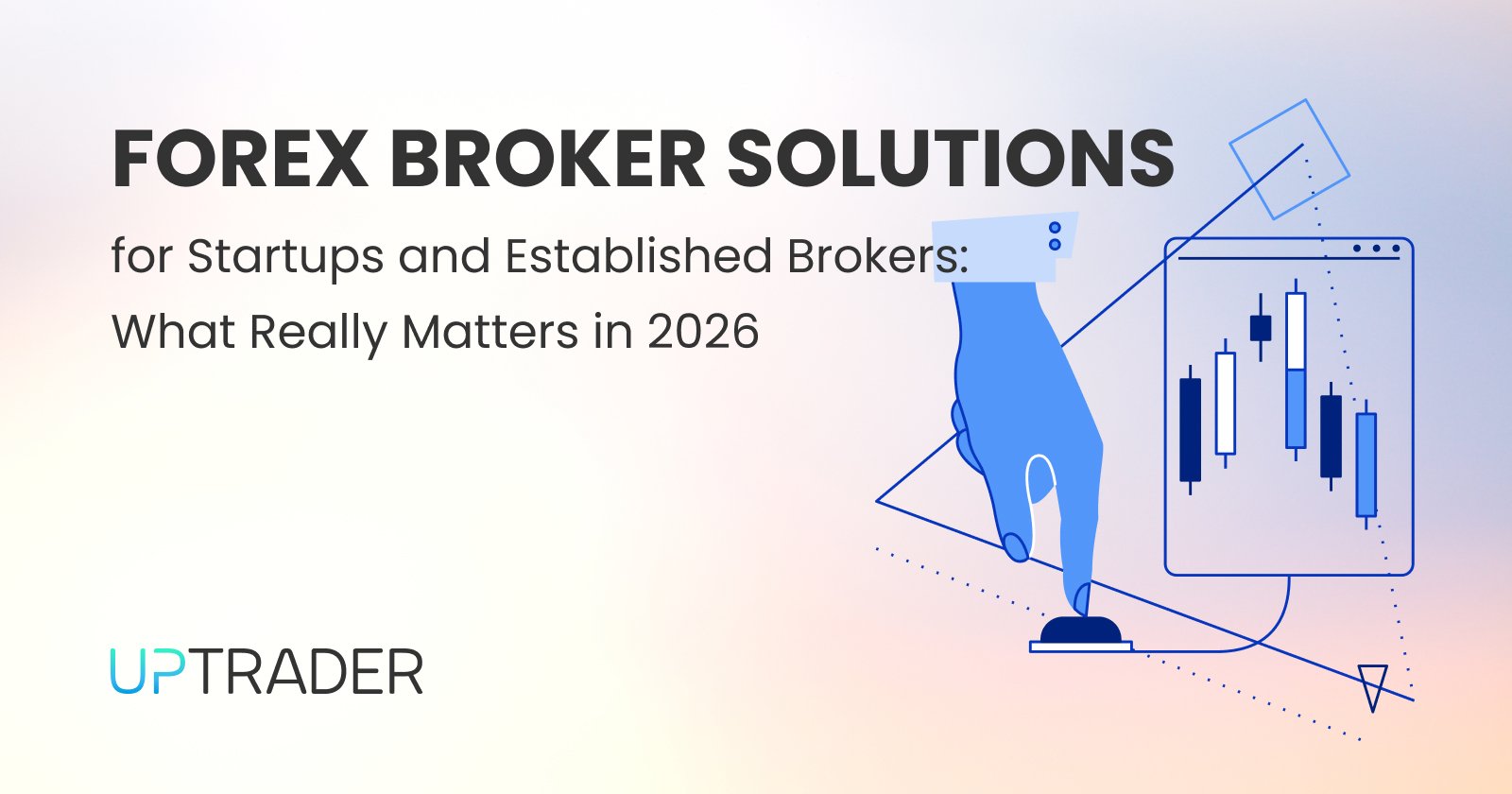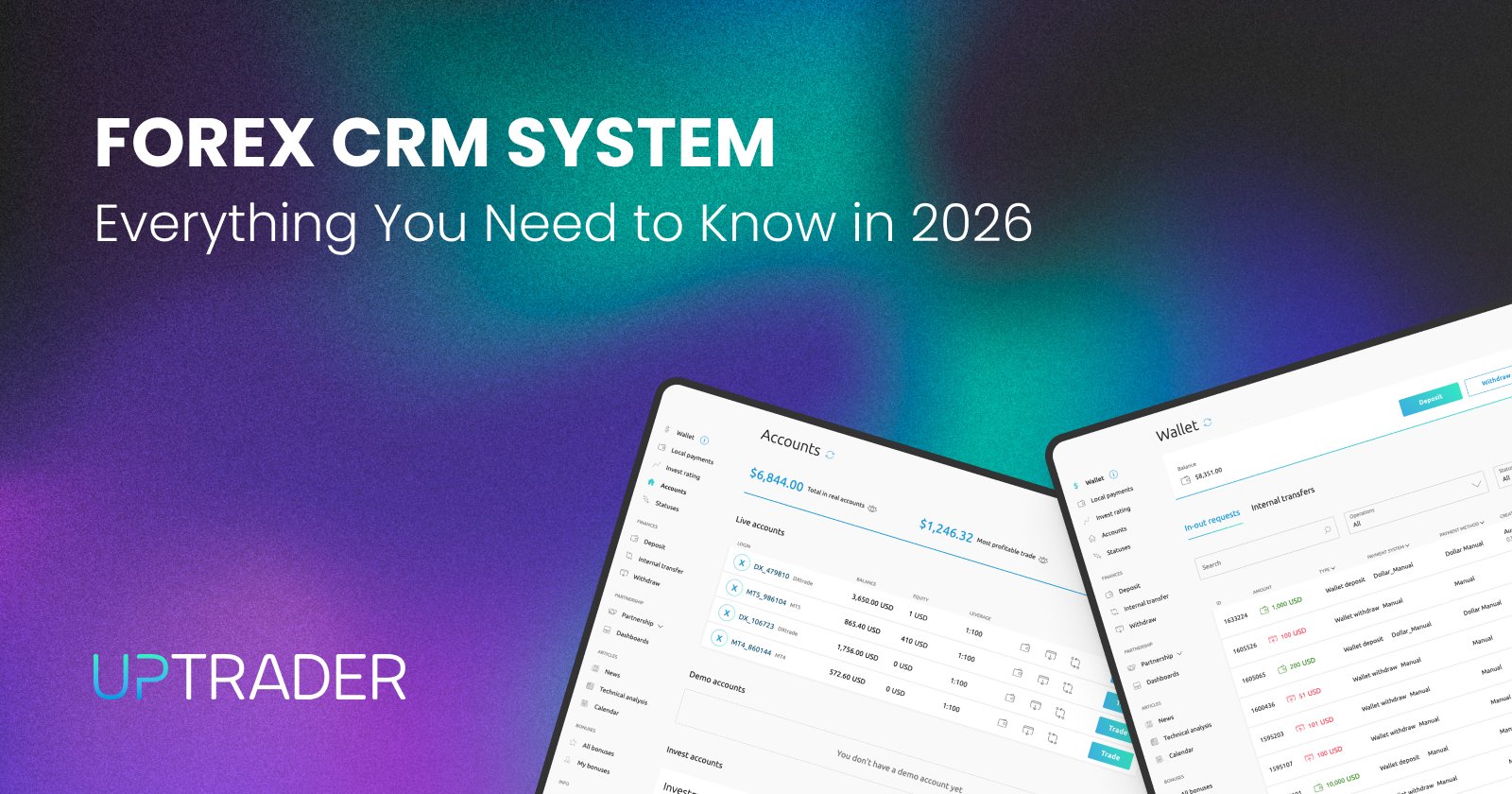The Future of Proprietary Trading: Top Software Solutions for Brokers

Share this publication:
The continuous development of cutting-edge technology and global marketplaces contributes greatly to the growing sector of proprietary trading or ''prop trading,’’ as it is commonly referred to. “Prop firms”, as they are known in the investment community, invest their capital into the markets instead of pooling funds from external investors to allocate them. They use a powerful mix of human and machine resources to stay in the race.
Understanding Proprietary Trading and Its Unique Needs
Proprietary trading is the risky process of dealing with, company stocks, bonds, commodities, or derivatives with the firm’s money. As in all other firms, potential monetization of every inefficiency in the market is one of their aims, however, most of them use such means as trading systems, high-frequency trading (HFT), and many others. Given the use of firm capital for trading encompasses risks, it follows that proprietary strategies in trading must validly incorporate advanced tools, data analysis, and execution capacities all of which favor institutional trading over retailing.
Prop trading software is therefore high-end specialized as regards performance, speed, and customization hence seeking to satisfy the needs of the end-users. It means that brokers require software that seamlessly works with risk management, algorithmic trading, and the execution of trades at breakneck speed while providing for extensive analytics and scalability. Characteristics of modern prop firm solutions include; the capability to process data in large volumes, complex algorithms operations, active risk controls, and up-to-date information provision to traders.
Trends Shaping the Future of Proprietary Trading
1. Algorithmic and High-Frequency Trading
In proprietary trading, the performance of algorithmic or high-frequency trading strategies is on the rise. Modern prop trading platforms enable a firm to liquidate intelligent strategies that can trigger hundreds to thousands of trades within a second. This trend will only escalate, as more trading institutions are inclined to bandwidth low-latency networks and canny algorithms to eliminate every price tick that may be available. More organizations will in the future embrace machine learning and artificial intelligence (AI) in the refinement of these strategies.
2. The Rise of Artificial Intelligence and Machine Learning
Machine learning models that analyze historical data, detect patterns, and generate predictive insights are becoming vital to proprietary trading. Brokerage services providers have been adopting AI and machine learning software solutions to enhance their trade paraphernalia and reduce threat levels. These systems collect and analyze enormous quantities of market data within a short window of time and modify their trading methods as so warranted. This trend is expected to grow explosive due to the fact that the AI models that will be integrated with prop trading solutions will be advanced.
3. Real-Time Risk Management Solutions
Effective risk management is extremely important as firms can incur much greater losses than in normal investing activities. For example, modern prop firm software must include the ability for real-time risk monitoring, stress testing, and predictive analytics to be conducted. Future developments in this area will also encompass self-service tools for risk reduction and risk management by employing AI to prevent the potential risks that can occur due to the changes in the market from affecting the positions of the traders.
4. Cloud-Based Solutions and Scalability
The need for fast and cloud-based trading applications is growing rapidly. Prop firms, especially small and new ones, can leverage the advantages of cloud computing, which is deconcentrated and reduces cost. For this reason, prop firms can increase the market scope of their operations without the need to put up costly physical ‘bricks and mortar’ infrastructure. These solutions provide the brokers the capability to increase or decrease the trading capacity depending on the business needs.
5. Enhanced Data Analytics and Visualization Tools
Any proprietary trading strategy has Data as its foundation and analytical data helps market behavior and find trading opportunities. State-of-the-art analysis platforms, which are sometimes embedded within proprietary trading systems, enable brokers to see insights and intricate groups of data in a matter of seconds. Data-driven trading is the future in which brokers will look for more than just looking for information. Information that is easy to read and easy to relay into action will be the primary focus of these tools.
Top Prop Trading Software Solutions for Brokers
1. UpTrader
UpTrader offers a comprehensive trading platform that’s rapidly gaining traction among proprietary trading firms for its innovative features and focus on customization. The platform includes various trading solutions, including algorithmic trading capabilities, advanced charting tools, and integration options tailored to the needs of prop firms. UpTrader stands out with its flexibility, allowing firms to adjust their settings to align with unique strategies and trading conditions. Additionally, UpTrader’s platform includes a risk management suite, enabling firms to set custom parameters and monitor risk in real time. With its scalability and versatility, UpTrader is an excellent solution for brokers seeking a dynamic and adaptable prop trading platform.
If you want to improve your prop trading firm, visit UpTrader and talk to a consultant on our website, or request a free demo for our prop trading solution today!
2. Sterling Trader Pro
Sterling Trader Pro is an advanced trading software widely utilized by day traders and proprietary trading companies. It allows direct market access (DMA), which is important in high-frequency and automated trading. The API of Sterling Trader Pro enables brokers to incorporate their algorithms and trading functionalities into the system and the risk management tools incorporated in the software allow companies to control the level of activity of internal traders and define the thresholds they can operate within. Sterling Trader Pro is especially acclaimed in the equity and options trading market for its ability to execute trades at low latencies which is a vital requirement in the business of proprietary trading.
Visit Sterling Trader Pro here.
3. Trading Technologies (TT)
Trading Technologies, or TT, is a robust platform offering advanced tools for futures and options trading. It is a cloud-based platform with a strong focus on speed and precision, making it ideal for high-frequency trading. TT’s proprietary ADL (Algo Design Lab) enables traders to build custom algorithms without needing deep programming knowledge. The platform’s open API makes it highly adaptable to a firm’s specific needs, and it integrates seamlessly with various market data sources. Its advanced risk management and real-time analytics capabilities make it a comprehensive solution for prop firms trading in global futures markets.
Visit Trading Technologies here.
4. CQG Integrated Client
CQG is known for its charting and analytics capabilities, and its Integrated Client platform is widely used by prop trading firms focused on futures and commodity markets. CQG’s robust market data feed and analytics make it a preferred choice for firms that rely on technical analysis. The platform provides access to advanced order-routing and execution capabilities, low-latency data, and highly customizable trading systems. CQG’s integration with algorithmic trading engines also makes it a good choice for prop firms looking to automate their trading processes.
5. Lightspeed Trading
Lightspeed Trading is a low-cost trading platform tailored for active traders and prop firms. Known for its speed and reliability, Lightspeed offers direct market access, which is crucial for high-frequency traders. It supports equities and options trading and provides traders with real-time Level II data and advanced charting tools. Lightspeed’s software is built to accommodate algorithmic trading and provides brokers with tools to manage risk across multiple accounts. It is especially popular among prop firms that focus on equity day trading due to its low-latency execution and easy-to-navigate interface.
Key Considerations for Brokers in Choosing Prop Trading Software
As brokers and prop firms evaluate their software options, several critical factors come into play:
- Execution Speed and Latency: Algorithmic and high-frequency trading require very low latencies hence executing trades is one of the most vital aspects of any prop trading solution.
- Customization and Flexibility: Proprietary trading strategies often require a level of modification. Hence brokers should seek out a trading application that has extensive application programming interfaces or technical scripting to allow for unique strategies.
- Risk Management Features: Every prop firm needs real-time risk management tools since they manage and control risks over numerous accounts and strategies.
- Data Integration: Access to real-time and historical data is essential for backtesting and refining strategies. Platforms with strong data integration capabilities provide a competitive advantage.
- Scalability and Cloud Compatibility: As prop firms develop, they require software that will also develop alongside them. More and more importance is being put on proprietary trading solutions that are based in the cloud because of their improved flexibility and scalability.
Conclusion and Final Thoughts
The development of the proprietary trading market is more and more influenced by technology, as brokers are looking for other investment avenues and benefit from specialized prop trading software in the process. From high-frequency trading to the teaching of computers to make trades through advanced algorithms, the sector is adopting all technologies that lead to rapid, precise, and research-based trading. The best proprietary trading software package solutions enable brokers to have ready-to-use technology for engaging in fast-moving data-oriented business environments which include offering speedy execution, extensive tailoring, and complete risk control. With time, there will be an increasing focus on AI, cloud technology, and data analytics, and this will have an impact on proprietary trading as well as the software used to carry out this business.
If you want to improve your prop trading firm or just want to make use of cutting-edge CRMs, amazing sales modules, and many more features, visit UpTrader and talk to a consultant on our website or request a free demo for our CRM solution today!







